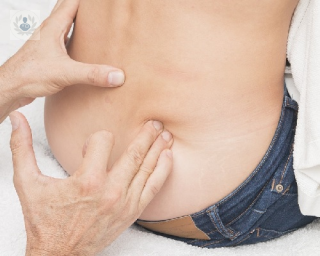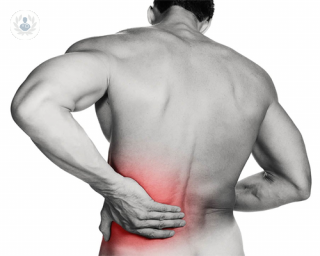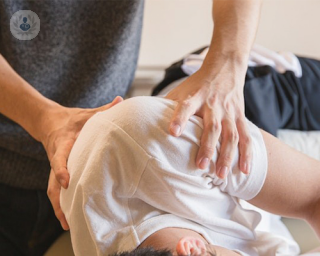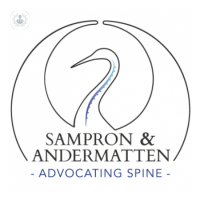Lumbar disc herniation
Lumbar disc hernia is an injury caused by degeneration or wear of the intervertebral discs of the spine, which act as shock absorbers between the vertebrae. Lumbar hernia is one of the most common and causes compression or irritation of the nerve root, which often just manifesting as sciatic nerve pain, depending on the position and size of the hernia. The main causes of herniated discs are articulate aging, trauma or prolonged exertion. In addition, there are risk factors that favor its appearance, such as obesity, sedentary lifestyle or snuff. Treatment varies depending on the severity of the case, and can be solved with temporary resting, drug administration, rehabilitation exercises or even surgery, it indicated only for patients who do not respond to other treatments and the pain persists markedly. A herniated disc L4 the level of injury when the pain radiates from the front of the thigh, no loss of sensation in the inside of the leg and foot, and causes weakness in the knee. L5 level of injury occurs when the pain radiates down the back of the thigh and there is a loss of sensation in the side wall of the calf and the back of the foot. Therefore, disc herniation L4 and L5 can be distinguished by the symptoms they cause.
















